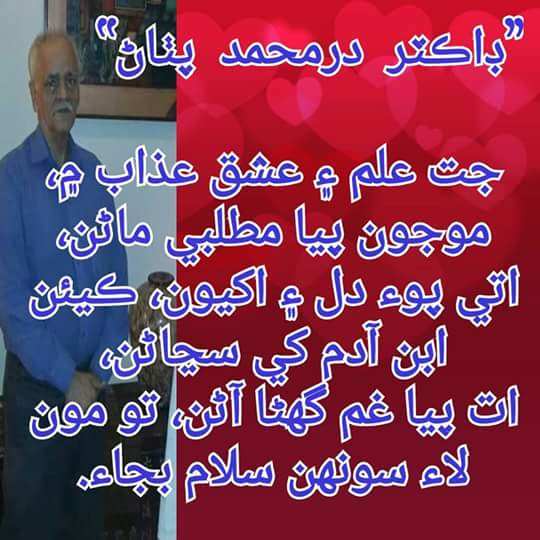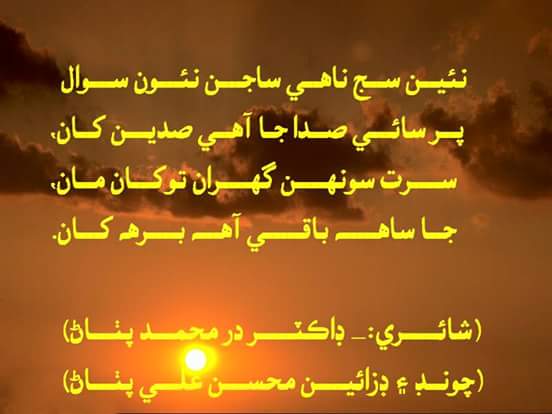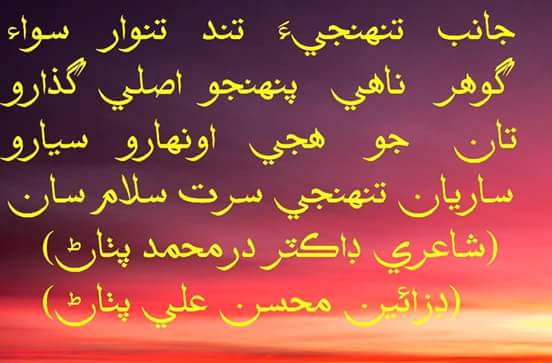|
ADDRESS BY Mohtarma Benazir Bhutto |
|
Prime Minister Islamic Republic of Pakistan To the |
|
Iranian Majlis (Parliament) |
|
Tehran. |
|
|
|
Mr. Speaker, |
|
Honorable Representatives, |
|
I consider it an honor to address the elected representatives of the Islamic Republic of Iran. Iran has a long and ancient history, a rich cultural heritage, a distinctive language. A history, heritage, language have left an influence, far and wide, in the region. |
|
The Islamic Revolution in Iran came about as a result of long struggle, the sacrifice of many martyrs and the sufferings of many more. It was the personal uprising of a people desiring to take charge of their own destiny. The Islamic Revolution was closely followed by the rest of the world and forcely defended by the people of Iran. |
|
Shortly after its inception the Revolution was caught in an unfortunate conflict. The people of Iran once again faced this new challenge with fortitude. We are glad that peace has now dawned and the people of Iran are engaged with the task of nation-building under the guidance of their elected representatives. |
|
I mentioned the history to recall the sense of sacrifice which the people of Iran have demonstrated to defend, what they believe in, irrespective of the cost. We too, in Pakistan, have struggled and sacrificed for what we believed in. The creation of Pakistan itself was the result of the struggle and sacrifices of the Muslims of the Sub-continent under the leadership of Quaid-i-Azam Mohammad Ali Jinnah. |
|
Many of the opponents of Pakistan thought that it would not survive the difficulties caused for it at its inception. But the people of Pakistan rose to the challenge and defended the nation against all threats. In three wars, Pakistan upheld its sovereignty and independence. |
|
Deeply conscious of the needs for Islamic solidarity and of the struggle against colonialism, Pakistan has been in the fore-front of all Muslim causes. Whether it be the independence of Algeria or Morocco or Tunisia Pakistan played a critical role. Equally, Pakistan raised its voice for the people of Kashmir, Palestine, Zimbabwe, and Namibia and against the Apartheid. More recently, Pakistan along with Iran and other countries of the world helped its Afghan brethren to resist the foreign occupation of Afghanistan. We raised our voices together for the people of Bosnia Herzegovina. |
|
Iran and Pakistan are not only two neighboring countries, but we are two Muslim countries. Islam binds us together in spiritual bonds which others cannot share in the same manner. Islamic principles have helped guide our peoples and shape our destiny. If Iran and Pakistan have raised their voices for the peoples of Kashmir, Palestine, Bosnia and Afghanistan it is because Islam binds upon us to speak the truth and uphold the banner of justice for the just cause. Islam makes it incumbent upon its followers to help the weak, the poor, and the oppressed. Thus it has been human dimension to shape our thoughts and our actions. All Muslims, whenever meet, greet each other with the words "Asslam-o- Alaikum", which means "peace be upon you". Therefore, Iran and Pakistan seek peace wherever they see conflict. All Muslims face the Holy Ka'ba when they bow down to prayers. In this act of prayer is the demonstration of our unity. Some elements would not like to see the unity of the Muslim world. Some elements would like to see the Muslim world divided on sectarian lines. Such elements are not sincere with Islam and the Muslim world. We, Muslim countries, and we Muslim people must beware of such elements. The rise of sectarianism would weaken us, divide us, and undermine our aims, objectives and goals. |
|
All Muslims are Muslims, whether they belong to one sect or another. All Muslims bow down and submit to the will of Almighty Allah. In unity lies our strength, and in unity lies our common identity, our hopes for the future and the attainment of our common goals for the prosperity of our peoples and the dignity of our nation states. |
|
With the end of the cold war, we have witnessed the decline of the order which dominated the world since world War-II ended. This was the world of ideological camps where different groups were identified as 'Left' or 'Right'. Now we see the rise in some areas of new dangers, the dangers of ethnicity or the dangers of tribalism. In Islam there is no place for ethnicity, racial prejudice, tribalism or discrimination. In Islam all human-beings are equal before the eyes of Almighty Allah irrespective of their ethnic, tribal or racial affiliation. In this again, we see the message of unity. And because we believe in the concept of unity and repudiate discrimination, we seek a world order which is just and equal, and that is why we oppose tyranny and injustice. |
|
The end of the Cold War has seen the winds of freedom and democracy below across the world. Iron curtains have been lifted, the Berlin Wall has fallen. We have welcomed the process of greater democratization within nations. However, the process of greater democratization within nations is not sufficient. We need greater democratization between nations too. |
|
Recently Iran and Pakistan both participated in the golden jubilee celebrations of the United Nations. It is the time for recollection. It is the time to recollect what we have achieved and what we still need to achieve. And while we have achieved global peace, regional conflicts continue to cast the dark shadows on the international horizon. One such major conflict which has remained unresolved is the Kashmir dispute. The Secretary General of the United Nations has called the Kashmir dispute one of the oldest unresolved items on the agenda of the United Nations. More than six hundred thousand (600,000) occupying troops have failed to crush the indomitable spirit of the Kashmiri people. Dawn to dusk curfews, gang-rapes of women, summary trials, arbitrary detentions, custodial deaths, and widespread tortures are some of the atrocities which have been committed. Acts of sacrilege have been carried out to destroy the Freedom Movement. And such acts have provoked the sentiments of all Muslims, all the Kashmiri people and all those who oppose sacrilege. Who can forget the siege of the Holy Hazratbal shrine in the valley of Kashmir? Who can forget the burning of the Mosque and the Mazar of Charar Sharif? Who can forget that this was done by those who burnt the Babri Masjid. Such acts were aimed not only against the Kashmiri people but they were aimed against all Muslims also and these acts cannot be forgotten by anyone. And they cannot be forgotten nor forgiven by the Kashmiri people. They will be passed from generation to generation. |
|
Pakistan and Iran stand shoulder to shoulder in support of the Kashmiri people, in their struggle for self-determination. We recall the historic words of President Rafsanjani when he addressed the Pakistani Parliament: "The Kashmir issue is your problem and it is our problem too, because it is an Islamic problem. Like you, we complain against the United Nations why do they not enforce the implementation of their resolutions and why do they allow this bloodshed". Iran, Pakistan and the entire Muslim world at the historic Casablanca Conference in a Declaration in December, 1994, called for the resolution of the Kashmir dispute in accordance with the United Nations resolutions. So-called elections will not satisfy the people of Kashmir who are demanding plebiscite with one voice. |
|
Pakistan and Iran have condemned Serbian aggression against Bosnia Herzegovina. The naked aggression against Bosnia in the heart of Europe telecast across the world is the sane on the conscience of the mankind. The world has shown a dismal failure to put into place security mechanism to uphold the Charter of the United Nations. The world has forgotten the two world wars sprang in one way or another from Sarajevo. Recently, some moves have been made to bring about political settlement. We hope that these moves will be to the satisfaction of the people of Bosnia Herzegovina, and will lead to peace. However, the tragedy of Bosnia has made one thing clear, that is, the each nation must be prepared to defend itself. If it cannot defend itself, it will be swallowed up or blotted out. Unless a country has its strategic importance to the rest of the world, the rest of the World will ignore it or be slow in responding to it. The slow response may lead to a fait accompliin itself. |
|
We are aware that some of our friends have argued that the world would slow in responding with the ulterior purpose of allowing the aggressors to fulfill the aims of their aggression. It was only the spirit of the Bosnian people which thwarted this strategy. I must say the Muslim World through their OIC Contact Group on Bosnia also contributed in a humble way to keep the issue alive, to assist and to coordinate global and regional move along with the Government of Bosnia Herzegovina. But again I must say that there is one clear lesson that each country must be prepared to defend itself if it is not crucial to the larger world. To be critical one has to have access to critical sea passages or energy flows which can adversely affect the rest of the world trade. Thus, nations in this world are judged by their impacts on global trade. One example, the country ravaged by civil war, is Afghanistan. The world united in Afghanistan when it was under foreign occupation to not only defend freedom in Afghanistan but to defend the free world. Now that there is no threat to the free world Afghanistan is forgotten story. |
|
Since Afghanistan has no bearing on the flow of global commerce it has no impact on world opinion. Except for a handful of countries the world has forgotten Afghanistan. Every now and then cursory references are made to Afghanistan. Both the United Nations and the OIC have sent their representatives to Kabul regime, but the Kabul regime has been sending them off. My heart bleeds for the brave people of Afghanistan. A whole generation of young people has grown up in war known only conflict, seen only sufferings. They live against the background music of marters and rockets. They live in the ravaged land with poverty, hunger and insecurity. Peace is the message of Islam, but the leaders and the commanders seem to have substituted the word 'peace' for the message of 'power'. They fight each other for 'power'. This is most unfortunate. |
|
We, in Pakistan, have decided not to give any material or military assistance to any faction. We believe that the term of Kabul regime is over. We condemn the Kabul regime for burning our Embassy in a premeditated attack. And yet we do not interfere. |
|
When President Rafsanjani addressed the Pakistani Parliament, he said, and I quote; "In fact no one but a mad man who wants to kill himself would like to interfere in Afghanistan in such a severe situation". Today, a sister of President Rafsanjani is here to repeat his words as our own sentiments in the Parliament of Iran. |
|
Mr. Speaker! |
|
We continue to give refuge to one-and-a-half million Afghans. We want the Afghans to solve their problems themselves but we do keep our channel of communication open with all groups. We keep our country open for all groups. Both Iran and Pakistan, and, indeed, all the geographical neighbors of Afghanistan are concerned about the instability in Afghanistan and will continue to watch over the situation closely. We, in Pakistan, believe, the UN and the OIC should re-double their efforts for a political settlement. We do not believe that any one group in Afghanistan has the strength or influence to rule over all Afghanistan. Different groups will need to come together and decide on a formula of power sharing. |
|
Mr. Speaker Sir! |
|
Pakistan's Foreign Policy is based on principles. Pakistan and Iran are good friends. Our history shows that we do not change friends with changing seasons. We believe in keeping friends and we believe in nurturing friendship. Our relation with one country is never on the cost of our relation with another country. When America and China were not on speaking terms we had relations with both. Their disagreements were their disagreements. If we did anything it was to counsel both to come close and bridge the differences. |
|
We consider Iran a friend, a neighbor and a brother in Islam. I recall the words of President Rafsanjani when he said to the Pakistani Parliament, and I quote: "It is a cruel and again against us that we both are rivals and are competing against each other, Rivalry for what? There is no rivalry between us. And if anyone thinks that Iran and Pakistan are having their own interest in interfering in Afghanistan then, no doubt, he is crazy". A segment of public opinion has started such rumors which are baseless. Those who are jealous of the friendship between Iran and Pakistan, those who like to see the security of Iran and Pakistan weaken, those who would like to create differences between two leading members of the Muslim Ummah, perhaps they would like to see Iran and Pakistan as rivals. Neither of the leadership, the governments, the people, nor the elected representatives of Iran and Pakistan can dream of the day when we would be rivals or compete with each other. We are friends, friends because of the principles, friends because of geography, friends because of religion, friends because we trust each other, and meet each other and because our mutual security and our well-being rest on this trust and on this friendship. If anyone seeks to undermine the security of Iran, the Iranian nation knows that it can rely on Pakistan. And if anyone tries to undermine the security of Pakistan, the Pakistani nation knows it can rely on Iran. |
|
Mr. Speaker Sir! |
|
While markets are taking the place of missile and the measure might, we cannot turn a blind eye to those who seek to dominate with military might. In our region one country is building up military arsenal. It is determined to build a blue water Navy. It has started production of short range missiles which can be deployed in half an hour. These missiles can target every single city in Pakistan, and are capable of carrying nuclear warheads. After this, this country intends to develop more missiles with a greater range. This country seeks to develop missiles capable of carrying nuclear warheads, all the way to Yemen to the Strait of Malacca. This country which is a non-Muslim country seeks to bring mostly Muslim countries from Yemen to the Strait of Malacca under the range of their missiles. We believe that if this country did not have far-reaching ambitions, it would not seek to make missiles of such range and carrying such lethal weapons. The developing of such missiles will cast the shadows of nuclear threat to the sovereignty of Iran, Iraq, Syria, Kuwait, and Saudi Arabia to the west, and to Malaysia, Singapore, Indonesia and Brunei to the east. |
|
Pakistan deplored this missile build-up which threatens to start a broader missile race. Pakistan calls for a regional solution to the missile issue. Pakistan did not wish to see this spread of nuclear proliferation or the spread of the weapons with mass destruction. Pakistan cautions the world to the danger boiling in the cold drink, before it overflows with dangerous consequences for regional and international peace and stability. |
|
Mr. Speaker Sir! |
|
As a Muslim woman, it gladdens my heart to see my Iranian sisters take their place with pride in the Parliament of Iran. In August this year Pakistan hosted a conference of Women Parliamentarians from Muslim countries. More than one hundred women representatives from 35 Muslim countries participated in this Conference. The large participation by our Muslim sisters show that a great awakening is taking place amongst the Muslim women. This awareness amongst the Muslim women first took place at the dawn of Islam. No one can forget that God chose a woman Hazrat Bibi Khadija to be the first witness to Islam. No one can forget that the Holy Prophet (Peace be upon him) married a working woman. No one can forget that the God chose a woman Hazrat Bibi Fatima through whom the line of Holy Prophet (Peace be upon him) was passed on to the generations. How can we forget that Hazrat Bibi Fatima is the daughter of the Holy Prophet (Peace be upon him), the daughter of the first convert to Islam, the wife of Hazrat Ali, the mother of the Imams: That God chose one woman for so many exalted positions have a meaning which we need to appreciate. Women in Islam must be accorded respect, dignity and right bequeathed by Allah in the Holy Book, as recited by the Holy Prophet (Peace be upon him). |
|
Mr. Speaker! |
|
I thank you once again on my own behalf and on behalf of the Pakistani people for inviting me to address the Iranian nation through its Parliament and its elected representatives. This is the singular honor as I am the first female Pakistani Chief Executive who has been accorded this honor. |
|
Mr. Speaker Sir! |
|
Iran can count on our friendship. We shall continue to cooperate in the years ahead as we have cooperated in the past. |
|
Thank you very much. |



